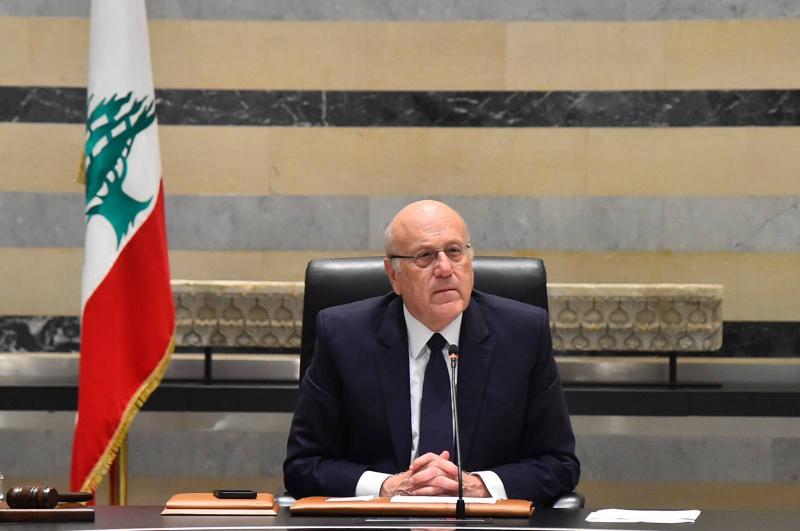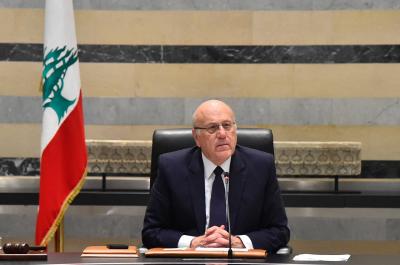After two weeks since the beginning of the war in southern Palestine and the escalation of military tensions along the border with Lebanon, Western diplomacy has failed to ascertain Hezbollah's position. No envoy, friend, intermediary, politician, researcher, media figure, or businessman has been able to obtain a clear answer from the party regarding its upcoming plans. This has led French Foreign Minister Catherine Colonna to state before leaving Beirut: "My recommendation to President Emmanuel Macron will be that there is a war ongoing between Lebanon and Israel. Hezbollah's silence does not prevent us from concluding that it is preparing for a fierce war. The red line for them is precisely what the Israeli government wants to cross in its war against Hamas."
The same French conclusion is shared by Western and Arab diplomats in Beirut who know from experience the difficulty of understanding the party's intentions, especially since everyone acknowledges that communication with Hezbollah has become ineffective due to its insistence on a strategy of ambiguity. This ambiguity has been compounded by observations noted by confused Western security agencies trying to interpret Hezbollah's maneuvers. They agree with Israeli sources that the party is not in a state of maximum alert, that its institutions are operating normally, and that its readiness is only evident along the border. Some within this group assure themselves that Hezbollah does not want to change the rules of engagement and seeks to contain any confrontation to the Shebaa Farms, while the escalation is being driven by Palestinian factions carrying out operations across the border in solidarity with Gaza.
In this context, Westerners are increasingly puzzled, as UNIFIL forces inform them that no one can undertake military operations in the south without Hezbollah's knowledge, which claims it is not the guardian of the borders. They also realize that the Lebanese Army lacks the capacity to suppress Palestinian groups, justifying this by stating that the zones in which the fighters operate are under Hezbollah's control.
In all cases, searching for answers in this domain seems to be a constant exercise for Western diplomacy and security agencies, while Israel, alone, knows better than anyone what Hezbollah wants. It particularly understands that the party cannot remain silent in the face of a decisive war being waged against the resistance in Palestine. Israel does not send intermediaries or messages seeking clarifications from the party; rather, it tries its luck hoping Hezbollah will back away from the developments in southern Palestine. Thus, the primary bet for the enemy rests on the American role. Others are merely messengers carrying messages without their own interpretations.
Israel, which does not need anyone to inform it of Hezbollah's ambiguity strategy, wanted the United States not merely to alert or warn the party but to exert direct, painful, and effective threats. Consequently, this process began with statements and messages relayed by the American ambassador in Beirut, Dorothy Shea, UN representatives, and through French diplomacy carrying significant messages. Subsequently, when the enemy received nothing but silence in response to its messages, it hastily turned to the Americans, asking them to take operational steps, which led to the decision to deploy naval military units to the Mediterranean. The Americans did not hide the fact that the function of these weapons was to deter Hezbollah, before President Joe Biden himself warned the party and Iran against taking any action.
The Americans, together with Israel, awaited the resistance's reaction in Lebanon to these messages. The wait was not long, as signals of a response soon emerged. There was an increase in operations against enemy positions along the border and a heightened political discourse directly undertaken by Iran through its Foreign Minister Hossein Amir-Abdollahian after his meeting with Hezbollah's leadership in Lebanon. Shortly after, in light of the American enemy raising the ceiling of its threats through diplomatic channels, the response materialized in the form of direct military operations against American military bases in Syria and Iraq, silent maneuvers in the Arabian Sea and the Red Sea, and the enemy picking up intelligence signals indicating potential operations against Israeli or American interests in several countries in the region.
These responses had a significant impact on the Israeli stance, which became compelled to adopt a different approach in the field, resorting to unprecedented military measures and granting its commanders in the field the freedom to act against Hezbollah's operations, conducting strikes without the usual restraint of avoiding hitting operatives, while ongoing efforts continued to contain the situation, as all of Israel's allies searched for the best way to manage the situation on the northern front.
Amidst this sea of fiery and diplomatic messages, there emerged a surprising suggestion from Foreign Minister Abdullah Bou Habib, proposing that the United States and Europe contact Israel to urge it towards actions that would help contain the situation on the northern front. Contrary to Bou Habib's assertions that he is a foreign minister, not an armed resistance fighter, he initiated remarks indicating a very serious matter, whether he originated the idea or was merely executing it. He notably sought to communicate with local, Arab, and international channels to arrange interviews where he stated: "Convince Israel to declare a ceasefire, which helps us convince Hezbollah to halt its military activities at the border." Suddenly, Bou Habib became an advocate for providing what Israel desperately desires at this moment on the northern front, even if he later claimed he was referring to a ceasefire in Palestine.
He did not stop at contemplating such a dangerous matter; he also announced that his stance came after coordinating with Prime Minister Najib Mikati and other prominent political leaders. Separately from the confusion among experts and the public about who is the least sincere, the Prime Minister denied being behind the initiative of his foreign minister. Moreover, it was reported that he stated: "I am not Fouad Siniora, and I want to coordinate every step with the resistance, even if I am more inclined not to go to war." It also became clear that the head of the Free Patriotic Movement, Gebran Bassil, is not on the same page as Bou Habib, as discussions indicate a tension in their relationship for over a week, with Bassil's team complaining of Bou Habib's refusal to coordinate with the team that appointed him to the position he occupies. Meanwhile, the relevant diplomatic teams indicate that Bou Habib’s daily agenda does not lack contact or written communication or meetings with the American ambassador.
Bou Habib, as he claims to be a sworn diplomat, should have chosen his words carefully, ensuring he does not equate Lebanese martyrs with enemy casualties and that he does not speak about the resistance in Lebanon as if it were an alien condition imposed on the Lebanese people. Ultimately, the list of mistakes by the foreign minister has grown excessively long since the battle for renewing the mandate of international forces in the south. In justifying this in his public gatherings, by claiming no one respects Resolution 1701, one might not need WikiLeaks documents to know what is said in closed sessions.




